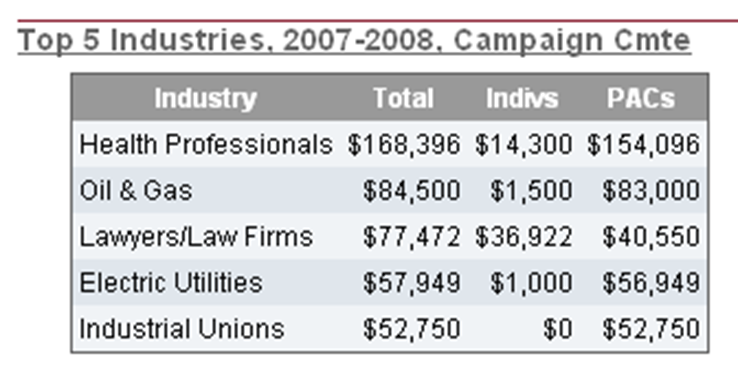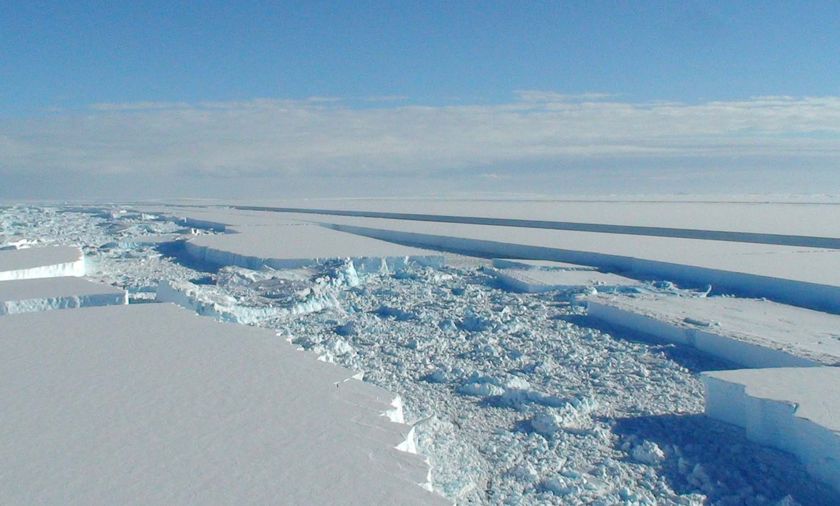We’ve been putting a lot of effort into pressuring US Congressman Charlie Gonzalez to support a strong climate change bill, but according to an article in the Houston Chronicle this morning, Congressman Gene Green from Houston is another key swing vote on cap and trade:
A 17-year veteran of Washington politics known for his low-key style and behind-the-scenes approach to legislation, Rep. Gene Green has seen his popularity skyrocket in recent days — at least with lawmakers eager to write new climate change rules.
The celebrity status comes courtesy of Green’s role as one of a handful of moderate Democrats on the Energy and Commerce Committee. His support is crucial to advancing a sweeping energy and climate change bill.
Looks like Gene Green wants to vote for the bill, but won’t support it without some pretty significant concessions to industry. Shocking.
The good news for Waxman, Markey and other proponents of the so-called cap-and-trade plan is that Green believes “the United States has to lead” in limiting greenhouse gas emissions.
The bad news? Green worries about the potential price tag for oil refiners along the Houston Ship Channel he represents.
“I’d like to vote for a bill,” Green said. “But I’m not going to vote for one unless I think it’s going to be good for the area I represent.”
Green has become the main lawmaker pushing for free allowances for refiners, as one of just four Democrats on the Energy and Commerce Committee representing states with big refining operations. The others are Rep. Charlie Melancon, D-La., Charlie Gonzalez, D-Texas, and Jim Matheson, D-Utah.
In order to support the bill, Green wants to give away 5% of pollution permits to refineries for free, and hand over 40% of allowances to utilities. At the risk of sounding like a broken record, GIVING AWAY ALLOWANCES IS A TERRIBLE WAY TO WRITE THIS BILL.
As I wrote a few weeks ago in a blog post scolding Charlie Gonzalez on this same issue,
Charlie Gonzalez just doesn’t have his facts straight on this one. If you’re really concerned about consumers, giving away pollution credits for free is about the worst way you can write this bill. Giving away allowances would force customers to pay for industry and utilities’ right to pollute without even cutting carbon emissions. There is a right and a very wrong way to write a good climate change bill, and Charlie is supporting the wrong way.
EPA’s most recent analysis say that giving away pollution credits is “highly regressive”, meaning it hurts low-income families the most. At best, this is a bailout and a free ride for the polluters. At worst it will create windfall profits for huge energy companies at the expense of every lower and middle income family in Texas.
Whether Green can make this bill good for the area he represents depends on what he means by “area.” If by “area”, Green is referring to his constituency, which is a majority-minority district made up of primarily low and middle income families, Green is going to have to think again. Giving away pollution allowances to industry sells out working families. It allows industry to jack up their prices without doing any real work to reduce their emissions and charge families extra for their “compliance costs”.
If this was just our opinion here at Public Citizen, you could dismiss it, but everybody agrees that giving away pollution credits for free hurts poor and working families. Who? Well, the Wall Street Journal, for one:
“There are a lot of things in the bill I need to have changed,” said Rep. Gene Green (D., Texas). Mr. Green, whose district is home to the largest petrochemical complex in the world, wants Mr. Waxman to give some pollution permits to oil refiners for free. “If that’s not in the bill, I can’t vote for it,” he said.
Refiners are lobbying to get for free 30% of the pollution permits, an amount that corresponds roughly to the share of U.S. greenhouse-gas emissions produced by transportation fuel. Without such allowances, the industry says, it will lose out to refineries in India and the Middle East that ship their product to the U.S. and don’t operate under carbon caps at home.
“The electric utilities want 40%, and if they’re getting 40%, the refiners say ‘Why shouldn’t we get 30%?”‘ Mr. Green said. Mr. Green said he has asked Mr. Waxman to give the refining industry a smaller share of the allowances — roughly 5%.
Economists say generally that consumer prices will rise regardless of whether permits are given away for free, and that giving them away for free will divert money from other purposes in the public interest, such as tax cuts for consumers.
As we mentioned before, the EPA’s analysis showed that giving away credits was “highly regressive.” When both our government’s environmental agency and our nation’s top conservative-dominated-hard-headed-economist-driven-Australian-tycoon-run newspaper agree on something, there’s a consensus, people.
Ok– time to put on our tin foil hats for a moment– but one explanation these actions is that when Gene Green is talking about his “area”, he really means the five refineries and “more chemical plants than (he) can count” inside his district. Green received significant campaign contributions from both the Oil & Gas and Electric Utilities industries. Check out the following chart from OpenSecrets.org:

To put these numbers in perspective, Green spent a total of $860,643 on his last campaign. Of that, $139, 949 came from the same folks Green is now trying to score free pollution credits.
If that weren’t enough, it looks like the refineries don’t even know their own business. They claim that paying for carbon will hurt them and force refining to markets like China who aren’t regulating their environment. Well, first, a new economic analysis shows that “Cap and Trade Won’t Push Heavy Industries Overseas”. Second, on what planet does it make economic sense to pump oil out of Texas, ship it literally halfway around the world to China, refine it, and then ship it back? You would need a PRETTY hefty price on carbon to make that economically feasible. And lastly, China is beginning to implement export taxes on steel and other carbon intensive products, making it even more unlikely that refining would ever move there.
Bottom line: Green can’t have his cake and eat it too on this one. He can either protect the families in his district by supporting a full auction of pollution credits that puts the revenue to work in renewable energy, energy efficiency programs, and rebates, or he can fill the pockets of polluters by demanding free carbon giveaways.
And, I do need to give Green some props– he is sponsoring the Fair Elections Now Act, which would create a public financing system for Congressional campaigns, freeing him forever from having to raise money from the fossil fuel industries or other special interests whose views may not coincide exactly with the greater good of the people of the 29th congressional district. We can only hope for such a world– we know Gene Green has to raise money for his campaigns, he certainly can’t get it from the working class people of his district, and we know that when special interests give it is not out of the kindess of their hearts but because they want access and influence.
Read Full Post »

 SustainLane
SustainLane
 NEWSFLASH! Carbon Dioxide emissions may represent a threat to public health or welfare.
NEWSFLASH! Carbon Dioxide emissions may represent a threat to public health or welfare.



